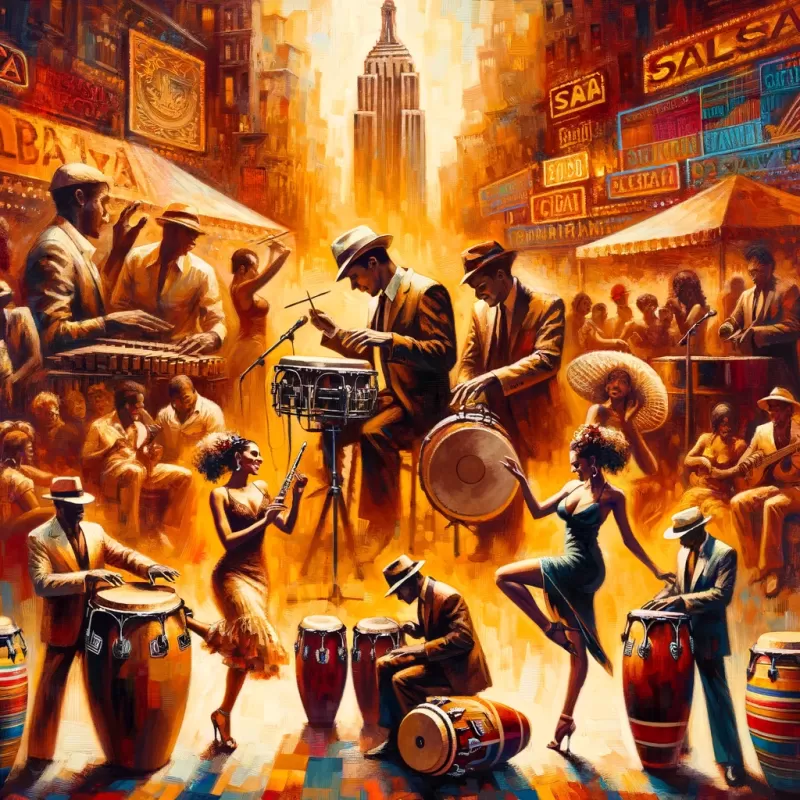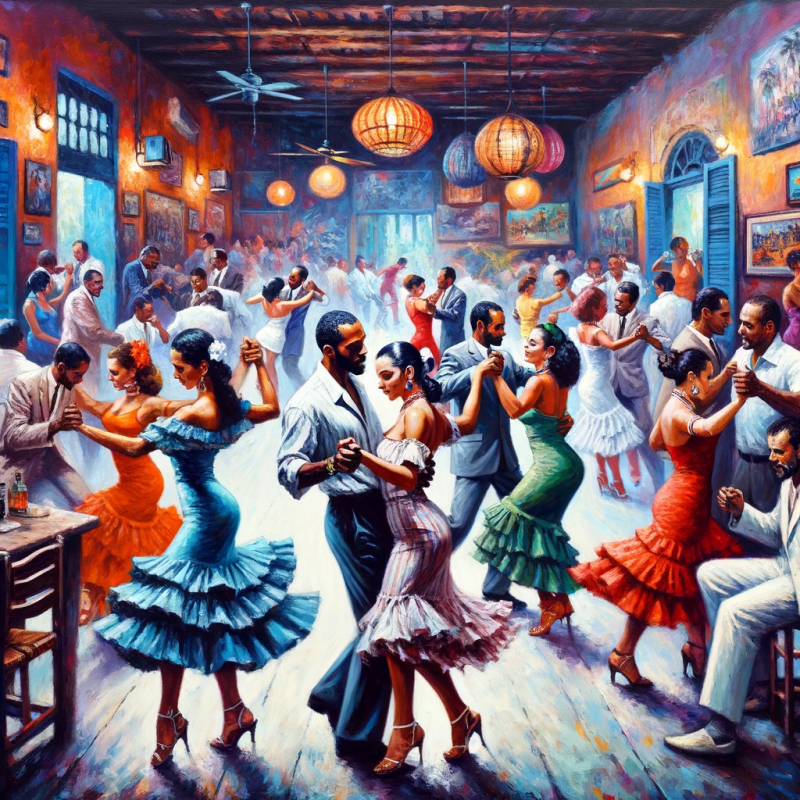Rhythms of Revolution: The Pioneers and Journey of Salsa
Published on February 7th 2024, 8:51AM Last modified on February 7th 2024, 8:53AM
Salsa, a genre that encapsulates the spirit of an era and the soul of a community, has traversed a remarkable journey from its roots in Cuban son and mambo to becoming a global cultural phenomenon. This narrative is incomplete without acknowledging the luminaries who shaped its sound, style, and essence, turning salsa into a powerful medium of expression and identity.
The Pioneers:
-
Celia Cruz: The "Queen of Salsa" is remembered not just for her powerful voice that could command the heavens but also for her indomitable spirit that broke barriers. Born in Havana, Cuba, Cruz's career spanned decades, during which she became a symbol of artistic freedom and cultural pride. Her vibrant costumes and unforgettable catchphrase, "¡Azúcar!", encapsulated the joy and resilience of the salsa spirit. Cruz's recordings and performances introduced salsa to audiences worldwide, making her an enduring icon of the genre.
-
Tito Puente: "The King of Latin Music," Puente was a virtuoso percussionist whose rhythms were the heartbeat of salsa. His extensive work in Latin jazz laid the groundwork for salsa's emergence, blending Afro-Cuban rhythms with big band jazz. Puente's compositions, like "Oye Como Va," have become staples in the salsa repertoire, celebrated for their intricate arrangements and irresistible grooves. His legacy is a bridge between the traditional and the contemporary, inviting generations to explore the richness of Latin music.
-
Johnny Pacheco: As the co-founder of Fania Records, Pacheco was a visionary who saw salsa as more than music—it was the voice of a people. Under his guidance, Fania Records became the Motown of salsa, catapulting many artists to stardom and solidifying the genre's place in music history. Pacheco's innovative approach to production and his talent for spotting and nurturing new artists were instrumental in creating the salsa boom of the 1970s.
-
Willie Colón: A prodigious talent with the trombone and a gifted composer, Colón was a pioneer who infused salsa with social consciousness, using his music to tell stories of life in the barrios. His collaborations with Héctor Lavoe and Rubén Blades produced some of salsa's most poignant and celebrated albums, blending infectious rhythms with lyrical narratives that spoke to the struggles and aspirations of the Latino experience.
-
Héctor Lavoe: Lavoe's voice was the soul of salsa, capable of conveying the deepest emotions with raw honesty and unparalleled grace. Known as the "Voice of Salsa," his collaboration with Willie Colón and solo works are seminal contributions to the genre. Lavoe's personal struggles mirrored the narratives in his music, making him a relatable figure to many fans. His ability to evoke laughter, tears, and reflection through his performances cements his legacy as one of salsa's most beloved artists.
The pioneers of salsa were more than just musicians and performers; they were storytellers, cultural ambassadors, and innovators who wove the fabric of a genre that resonates with audiences around the globe. Their contributions have ensured that salsa remains a vibrant testament to the power of music as a form of cultural expression and unity. As we dance to the rhythms they created, we celebrate not just a musical genre but a rich cultural heritage that continues to inspire and connect us.





Comments (0)